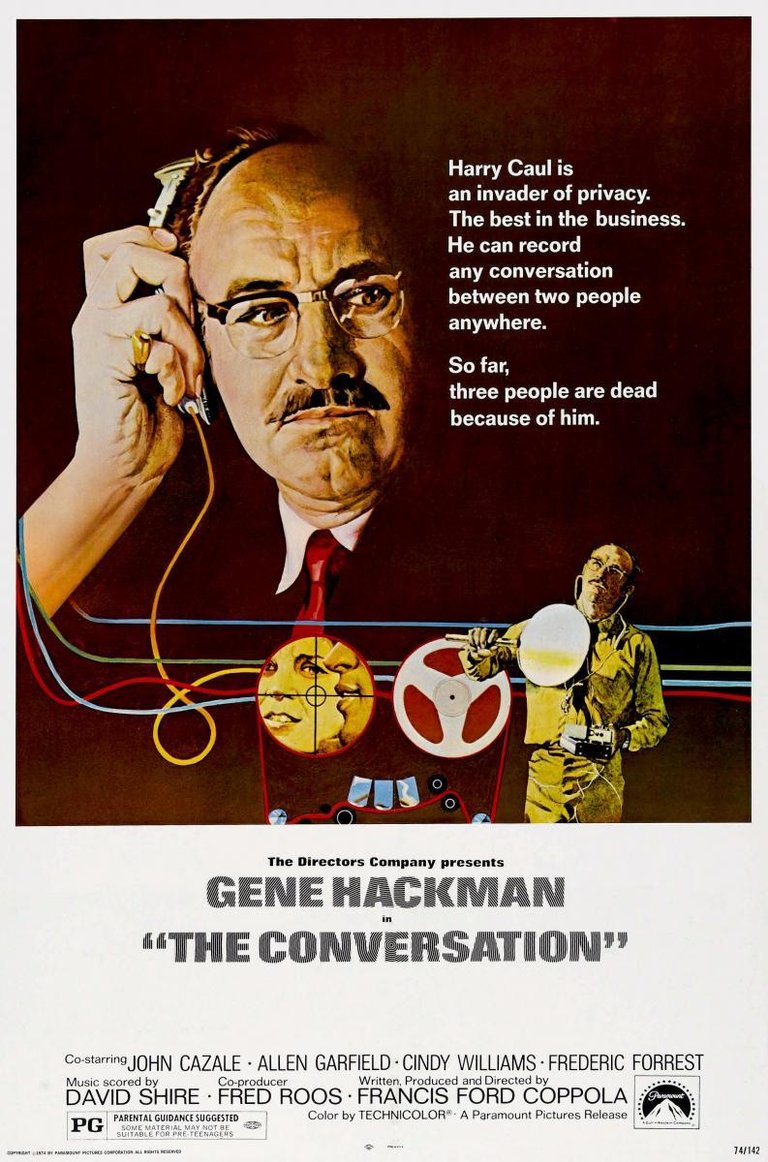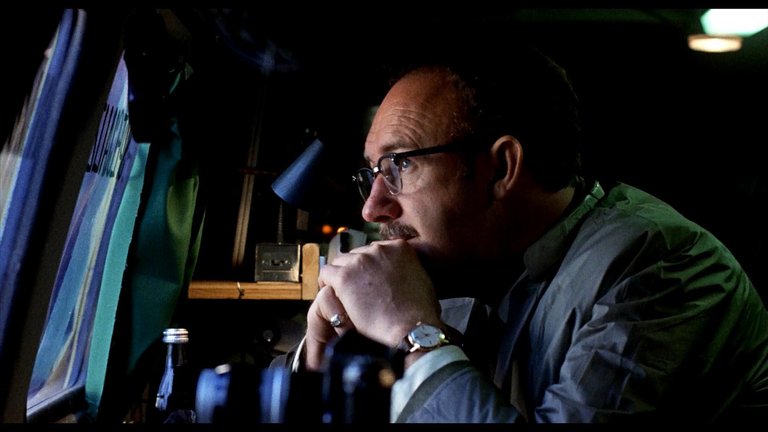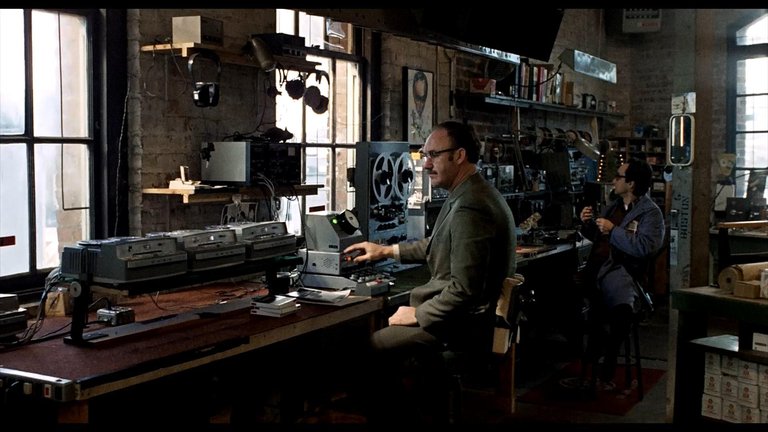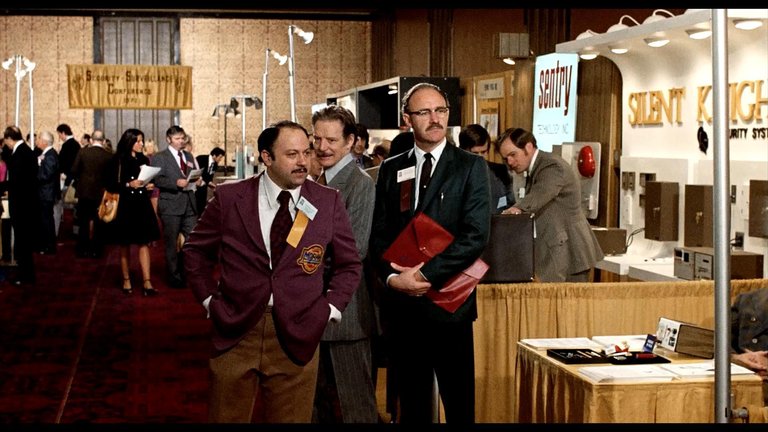The Conversation of Francis Ford Coppola

Source
Between the successes of "The Godfather 1 and 2", Francis Ford Coppola made an understated film starring Gene Hackman in the title role, as well as John Cazale, Robert Duvall, Robert Duwall and a young Harrison Ford.
His work is a strange and disturbing film, the tone of which is that of a European-influenced psychological thriller with a clear allegorical undertone (the 1972 Watergate breakout).

Source
Our troubled voyeur, a pathological perfectionist, seeks relaxation in his flat by playing the tenor saxophone as an amateur, thus incorporating the jazz flavour of David Shire's brilliant score.
A film situated in a specific generic variant, the conspiracy cinema of the 1970s, which places the relationship between certain plot elements and a study of isolation and loneliness, in the space of films like "Blow". Antonioni's "Installation.-up" and Brian De Palma's "Impact".
The film also hints at the paranoia of surveillance and the systemic lack of privacy.
Coppola uses a concise, cold tone to depict the theme of loneliness and the madness it can lead to.

Source
The Conversation achieves a similar perfection in its monasticism to Antonioni's film, which was shot in London and inspired by the live-action photographer David Bailey, and which produces a similar narrative mechanism, though one amplifying the photographic image, the other amplifying it ... .
By amplifying the sound, both directors imbue the stillness of the photographs and the abstraction of the sound space with a sense of cinematic fluidity, with the exquisite sound techniques employed by Walter Murch crucial to the understanding of the film's ordered drama and narrative.
In "The Conversation", the moral dilemma Harry faces is clear: not to interfere in other people's affairs, because it goes against his professional ethics and could lead him into a dangerous situation.
Watching "The Conversation" today, it is hard not to think of Florian Henckel-Donnersmarck's acclaimed debut novel, "The Lives of Others".

Source
What distinguishes the two films is the depth with which both directors address the problem of illegal eavesdropping on professionals and their ethical stances towards their work and those under surveillance. Equally surprising was the then unknown Harrison Ford playing a big corporate executive in minor roles and sketches.
Put yourself in Harry Call's shoes and listen to these recordings as often as necessary. Share with Harry his obsession with work, his guilt, his painful childhood, his nightmares, his pain, his tragic loneliness...
0
0
0.000
Congratulations @petercurator! You have completed the following achievement on the Hive blockchain And have been rewarded with New badge(s)
Your next target is to reach 150 posts.
You can view your badges on your board and compare yourself to others in the Ranking
If you no longer want to receive notifications, reply to this comment with the word
STOPTo support your work, I also upvoted your post!
One of the most exciting aspects of this film is that although it was made in the 70s, it maintains relevance in our time. That deep analysis that Coppola so masterfully performs, about privacy and paranoia, resonates more and more.
Excellent recommendation!